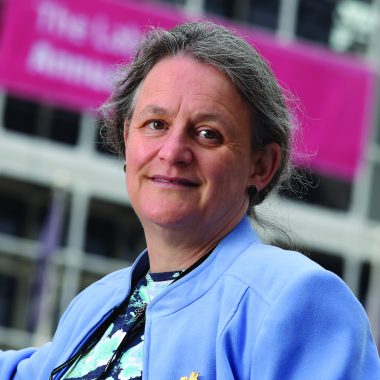Profile Dr Terri Eynon
Age 52
Roles GP and elected Labour county councillor for Coalville on Leicestershire County Council
Place of work Earl Shilton, Leicestershire
Hours worked per week 50–60, between 10 and 20 of which are as a councillor
05.50
I grasp the mug of tea made by my husband, who is also a district councillor. I do my best thinking overnight, and often wake with a strategy to discuss with him.
06.30
Breakfast is a bowl of muesli as I scroll through the overnight emails and tweets. This morning it emerges that the county council has threatened to close the local museum and discovery park.
07.30
I drive to work, tuned into BBC Radio Leicester. I currently work as a salaried GP in a part-time maternity cover post. My morning surgery is followed by eight phone calls, one visit and attending to results, prescriptions and paperwork.
I qualified as a GP in 1990, then pursued psychotherapy to consultant level, before returning in 2003 to general practice, where I was forever picking up mental health issues or medically unexplained symptoms. I set up an extended surgery-based IAPT service, then had a portfolio role as PCT mental health lead. I became a county councillor last year, frustrated at the damage being done to general practice.
13.00
A visit to an 89-year-old lady to provide a check-up after a fall is a good opportunity to chat with her and her family about her future care needs. I have promised the family that if the patient has another crisis the response will be better co-ordinated – but wish I could believe this will happen.
I spend a quarter of an hour writing a care plan for her – fulfilling NHS England’s DES target. Filling in three sets of paperwork to satisfy the ambulance and out-of-hours service takes another 15 minutes, leaving no time for lunch.
14.00
I spend a few hours in a political meeting. There are three main types. Full council is the meeting where councillors sit in an auditorium and receive official papers, ask questions and make speeches. Scrutiny meetings are less party oriented, although each scrutiny committee has political balance and may be chaired by a minority party. On health we look at reports from providers and commissioners. There are also briefings for councillors, which are cross-party and held in private.
Then there are local party meetings. I attend any all-member meetings held by the North West Leicestershire constituency Labour party, any campaign discussions (a few of which I am leading on), and then there are the meetings of the Coalville branch Labour party, which I chair.
Today is a scrutiny committee meeting. A big issue is the hospital mortality review, which has shown a worrying level of ‘poor care’. Being a ‘real GP’ gives me an edge. I spend three hours ploughing through papers from NHS England, our two CCGs, hospital trusts and other providers.
I ask questions inspired by the British Geriatric Society’s Silver Book campaign: How many of the advanced care plans completed by practices in the past two months have been co-created in the context of an established, continuous and meaningful relationship with a primary care clinician who can co-ordinate care? I’ll be surprised if I get a sensible answer.
17.30
On non-councillor days, I finish up afternoon surgery at this time, my mobile switched to silent. The office phone will email me any messages.
18.30
Dinner time is a good chance to catch up with my family, including my son who does voluntary work indentifying supporters for the Labour party.
19.30
Most evenings include political meetings. I have two parish councils to work for, as well as my campaigns, and telephone canvassing.
21.00
Clearing emails is an endless task. I give up the battle and spend an hour playing my 34-string lever harp to relax.
22.00
After watching the news, I take myself to bed and read myself into oblivion with the next set of council papers.
One of my big challenges in combining politics and general practice is to keep continuity of care and job security. When I worked as a GP I also had a role on the local health scrutiny committee, and when my employer got elected as CCG lead it caused a conflict of interest.

















